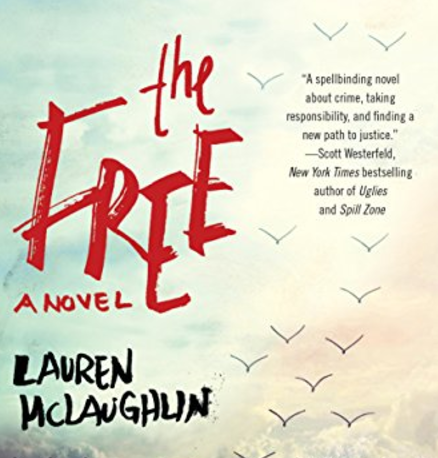What Improv Has Taught Me About Writing
Those two words constitute the first rule of improv. If someone steps out onto the stage and says to you: "Hello there, Pirate Jack, I'm sorry to hear that your parrot has died." Guess what, you're Pirate Jack now and your parrot is dead. You can't say: "But I'm not a pirate. I'm a surgeon." You say, "Yes, I'm a pirate. My parrot is dead. I am in mourning, and to soothe my sorrow, I propose an immediate attack on yonder island." And you're off.
Yes and.
I remember reading about the Yes-and rule of improv many years ago. I'd never taken a class in improv but something about the nature of that rule stuck with me. I wondered what would happen if you took a Yes-and approach to life itself. After all, if something happens, there's no point in saying No to it. You can't undo what's already happened. So why not say Yes and see where that takes you? I even managed to use the Yes-and rule to coax a friend into staying in a relationship she was having doubts about. Her doubts were amorphous and rooted, I suspected, in a reluctance to take risks rather than any substantive misgivings about her partner. So I said: "Just say yes. See what happens." She did. Ten years later, they're still married with two kids.
Yes and.
I started taking improv classes about 6 months ago because I wanted to throw a monkey wrench into my writing process. I was feeling creatively rutted and felt the urge to break out of my comfort zone. I have never had much interest in performing live and the thought of doing so without a script sounded absolutely terrifying. So of course I had to try it. As a writer, I know that the more you fear something, the more you need to look into its dark heart. That's where the story is. So for the last 6 months I've faced down the fear of screwing up, of blanking, of not getting a cultural reference (when you're an American in London, this happens all the time) and Yes-and-ed my way through hours of unpredictable, hilarious, occasionally disturbing, and sometimes just plain weird scenes. Now, just a few short weeks before my first live improv show, I'm still scared, but I've loved every minute of it.
In improv no single person is in charge. The scene you and your team create is an emergent phenomenon that lives for a moment then dies. No matter how much you practice, it's always new and always unpredictable. I've been a vampire, a bored husband, a rock star, and a coyote's girlfriend. In many ways, it's similar to writing novels because you have to be able to imagine and inhabit an infinite number of characters. And, since you don't always get to choose which characters you're playing, it pushes you beyond your limits. You have to trust your scene partners and communicate with them, and to the audience, at the deepest levels of your imagination. It takes hours of practice to develop the skills and the confidence to do this. But practice isn't about perfecting any one scene. There's no point. No matter how perfect it is, no one's ever going to see it again. It's about honing your skills so that you can always perform no matter what someone throws at you.
Writing novels is also a performance. Every day you have to get up and create something new. And a lot of it--in my case, most of it--ends up being cut. It lives and dies for a moment. But if you've created thousands of these moments, maybe a few hundred of them are good enough to form the finished product: the novel. Since I started taking improv classes, I've noticed certain changes in the way I write. I have much more trust in what I commit to the page now. Rather than focusing on why a certain plot twist won't work, I just go with it. I Yes-and it. I have faith that I can keep Yes-and-ing all the way to its logical conclusion. I can take the scene, or the character arc, or the whole novel wherever it needs to be.
Before Improv I used to get hung up on explaining things. If I'd set a character into a particular situation, I'd feel the need to explain how she wound up there. One of my improv teachers referred to this tendency as "going to Explainy Town." And the simple rule of improv is: don't do it. If your scene partner steps out onto the stage and says she's trapped on a starship with a bunch of escaped pandas, you don't step out to explain how this happened. You get out there and be one of the pandas. You're on a starship now. See where that takes you.
Yes and.
Whether it's novel writing or improv, you earn the trust of your audience, not by explaining things, or by making perfect little logical tales, but rather by committing fully to whatever you've created. To accomplish this feat, you have to trust your instincts and your imagination. You have to keep Yes-anding all the way to the end. It's a performance. Every single day.
Tweet this article: Tweet Follow @LaurenMcWoof
